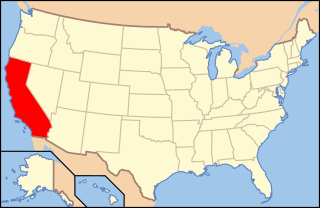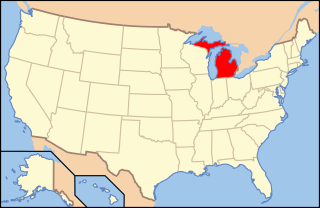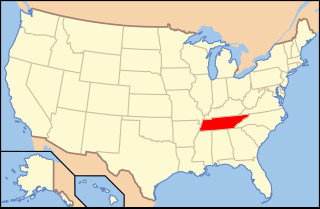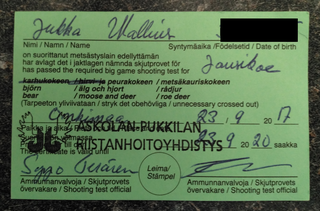Gun laws and policies regulate the manufacture, sale, transfer, possession, modification and use of small arms by civilians. Many countries have restrictive firearm policies, while a few have permissive ones. According to GunPolicy.org, the only countries with permissive gun legislation are: Austria, Azerbaijan, Chad, Republic of Congo, Honduras, Micronesia, Namibia, Nigeria, Pakistan, Senegal, Switzerland, Tanzania, the United States, Yemen and Zambia, although several other countries including Canada and the Czech Republic, despite theoretically being restrictive, are shall-issue countries. Countries with a strong gun culture may afford civilians a right to keep and bear arms, and have more-liberal gun laws than neighboring jurisdictions. Countries which regulate access to firearms will typically restrict access to certain categories of firearms and then restrict the categories of persons who may be granted a license for access to such firearms. There may be separate licenses for hunting, sport shooting, self-defense, collecting, and concealed carry, with different sets of requirements, permissions, and responsibilities.
In the United Kingdom, access by the general public to firearms is tightly controlled by laws which are much more restrictive than the minimum rules required by the European Firearms Directive. It is less restrictive in Northern Ireland. There is some concern over the availability of illegal firearms.
Gun laws in Finland incorporates the political and regulatory aspects of firearms usage in the country. Both hunting and shooting sports are common hobbies among Finns. There are approximately 300,000 people with hunting permits and 34,000 people belong to sport shooting clubs. Over 1500 people are licensed weapons collectors. Additionally, many reservists practice their skills using their own semi-automatic rifles and pistols after the military service.
There are shooting ranges in the United States open to the public, both indoor and outdoor. Either privately owned firearms or those rented from the shooting range may be used, depending on the range rules set by the owner. Some ranges rent their own handguns and provide instruction in use of rental guns at shooting ranges by a range master or similar individual to help one to easily learn use of any rental firearm in just a few minutes. Major tourist destinations in gun-friendly U.S. States have such "rental ranges" to cater to the domestic and international tourists that want to try their hand at the shooting sports. Each shooting range facility in the United States is typically overseen by one or more range masters to ensure gun safety rules are always stringently followed.
Gun politics and laws in Mexico covers the role firearms play as part of society within the limits of the United Mexican States. Current legislation sets the legality by which members of the armed forces, law enforcement and private citizens may acquire, own, possess and carry firearms; covering rights and limitations to individuals—including hunting and shooting sport participants, property and personal protection personnel such as bodyguards, security officers, private security, and extending to VIPs.
Gun laws in Norway incorporates the political and regulatory aspects of firearms usage in the country. Citizens are allowed to keep firearms. The acquisition and storage of guns is regulated by the state.
Gun legislation in Germany is regulated by the German Weapons Act which adheres to the European Firearms Directive, first enacted in 1972, and superseded by the law of 2003, in force as of 2016. This federal statute regulates the handling of knives, firearms and ammunition as well as acquisition, storage, commerce and maintenance of weapons. It also defines certain forbidden items, including nunchucks, switchblade knives and brass knuckles, and bans their possession and distribution.

Gun laws in California regulate the sale, possession, and use of firearms and ammunition in the state of California in the United States.

Gun laws in New York regulate the sale, possession, and use of firearms and ammunition in the U.S. state of New York, outside of New York City which has separate licensing regulations.

Gun laws in Oklahoma regulate the sale, possession, and use of firearms and ammunition in the state of Oklahoma in the United States.
Gun laws in Honduras refers to the regulation of the commerce, ownership, possession and use of firearms by the citizens and residents of Honduras. Hondurans have remained passive on the control of proliferation of firearms in the country. Escalation in crime and the use of firearms in the commission of crimes and homicides has brought political and public discourse to consider regulation of arms.
Gun laws in Hawaii regulate the sale, possession, and use of firearms and ammunition in the state of Hawaii, United States. Hawaii's gun laws are among the most restrictive in the country.

Gun laws in Indiana regulate the sale, possession, and use of firearms and ammunition in the U.S. state of Indiana.
Gun laws in Maine regulate the sale, possession, and use of firearms and ammunition in the U.S. state of Maine.

Gun laws in Massachusetts regulate the sale, possession, and use of firearms and ammunition in the Commonwealth of Massachusetts in the United States.

Gun laws in Michigan regulate the sale, possession, and use of firearms and ammunition in the U.S. state of Michigan.

Gun laws in New Jersey regulate the sale, possession, and use of firearms and ammunition in the U.S. state of New Jersey. New Jersey's firearms laws are among the most restrictive in the country.

Gun laws in Pennsylvania regulate the sale, possession, and use of firearms and ammunition in the Commonwealth of Pennsylvania in the United States.

Gun laws in Tennessee regulate the sale, possession, and use of firearms and ammunition in the state of Tennessee in the United States.
















